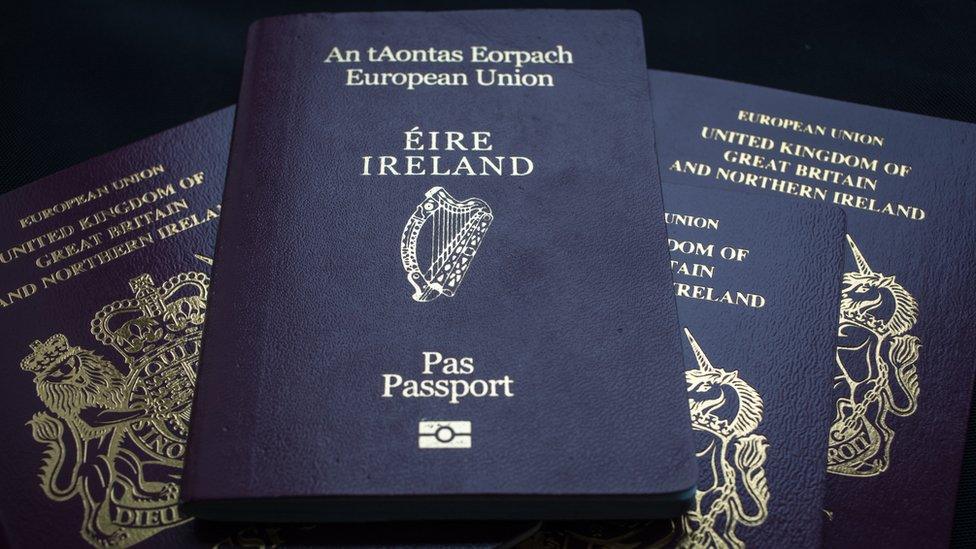Brexit 'made me want to become an Irish citizen'
- Published
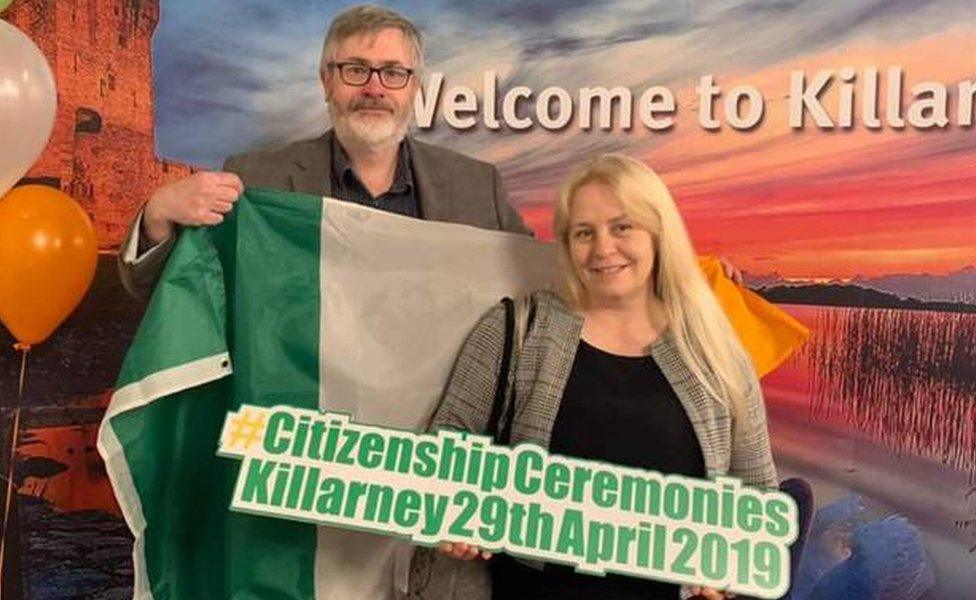
Laurie Kearon and her Irish husband at the most recent citizenship ceremony last month
The last three years have seen a "steady rise" in the number of British people seeking Irish citizenship since the UK voted to leave the EU in 2016.
Among Ireland's new citizens are "Lancashire lass" Stephanie McCorkell and Welsh ex-pat Laurie Kearon and both have a similar story to tell.
Both have lived in the Republic of Ireland for decades, retaining their British identity, but fears over Brexit prompted them to seek Irish citizenship.
Stephanie's story
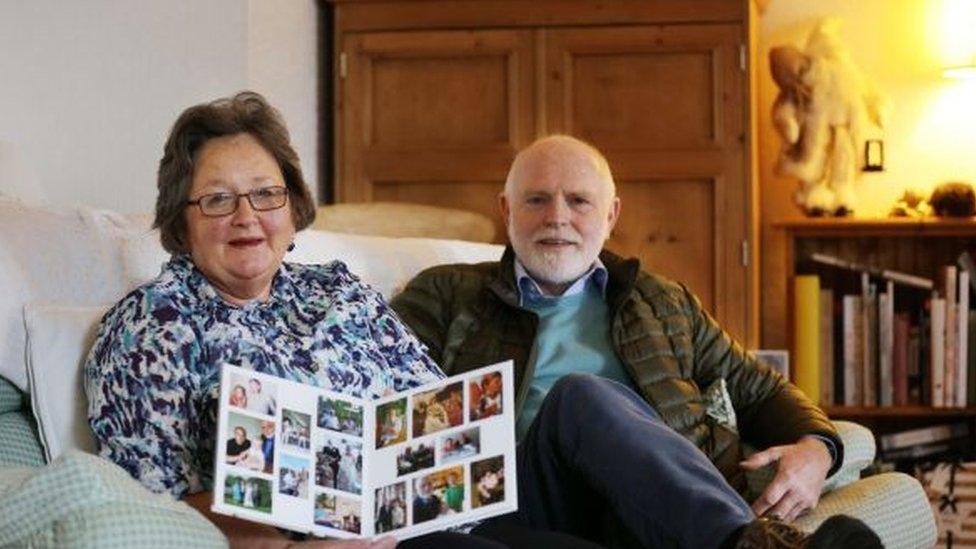
Stephanie McCorkell and her husband set up their family home in County Meath in 1981
Just a few months short of her 70th birthday, Stephanie McCorkell has spent almost all her adult life on the island of Ireland.
Born and bred in Liverpool, she left the city 46 years ago but still speaks with a soft, but distinct, Liverpudlian lilt.
"If anybody asks me what I am, I say 'I'm Irish... with an English accent'," she laughs.
Her husband is from County Tyrone and they met during his student days in Liverpool.
They began married life in England, where their first two children were born.
In 1973, Prof McCorkell got a teaching job in his native Northern Ireland and the family set up home outside Belfast, during the height of the Troubles.
They spent the next eight years north of the Irish border, where they had two more children.
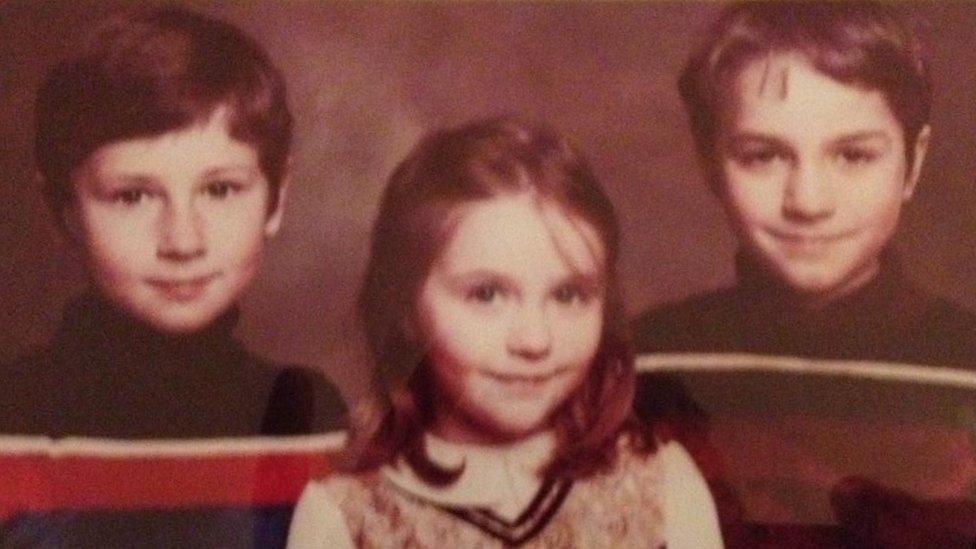
The eldest of Stephanie McCorkell's children, pictured in Belfast in 1979
By 1981, Prof McCorkell got a post in the Republic of Ireland and the family moved to Ashbourne, County Meath.
Their youngest child was born in Dublin and they raised their five children as Irish citizens.
Six months after the Brexit vote, and more than four decades after moving across the Irish Sea, Mrs McCorkell felt compelled to apply for Irish citizenship.
"I didn't want to be classified as British, with the nationalism that seems to be creeping in," she said.
Born to a mother of Dutch descent and a father with Irish heritage, immigration is in her blood.
"I've considered myself European since I was a child", she said, but her nuanced sense of identity means she also described herself as an Irishwoman and a "Lancashire lass".
Her wish to remain an EU citizen partly motivated her application.
The pensioner worried she could lose her European Health Insurance Card or be separated from family at airports.
"My husband travels on an Irish passport," she said. "I thought I don't want to be waiting, or going through another gate."
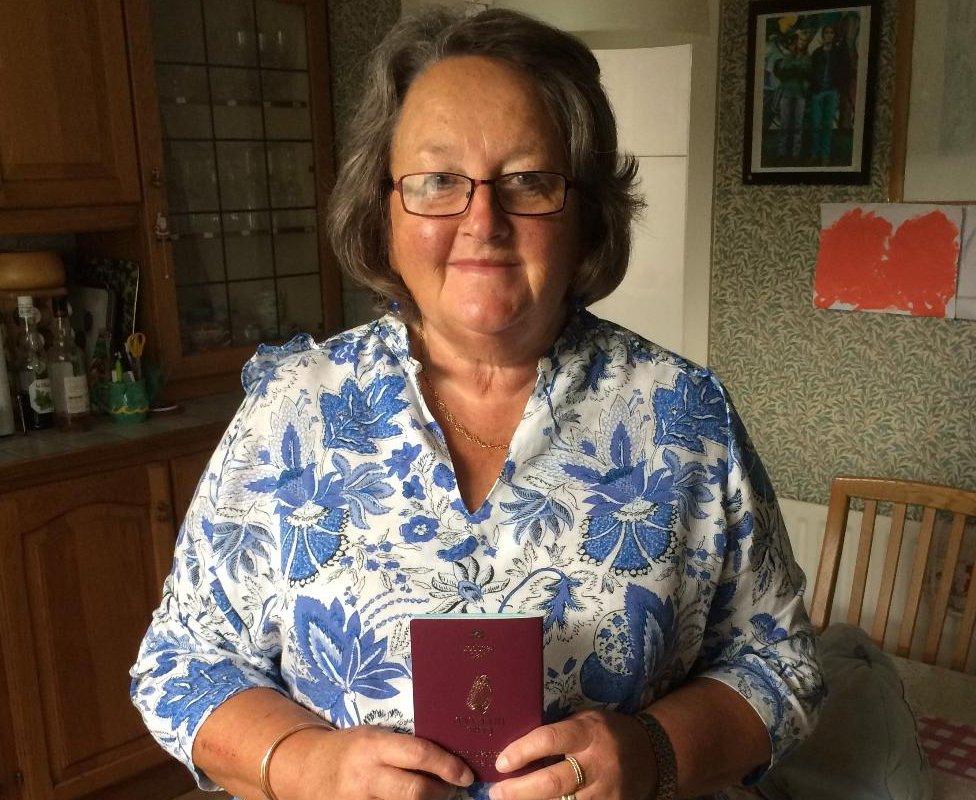
Stephanie McCorkell got her first Irish passport when she was in her late 60s
But her travel itinerary threatened to scupper her chances of an Irish passport.
Citizenship rules state an applicant must not leave the jurisdiction for more than six weeks in the year before applying.
Two short trips to France meant more to the officials than the four decades she spent in Ireland.
For Stephanie, it felt like her lifelong contribution to Irish society was worthless.
"I've worked, I have a full Irish pension and I'm not dependent on my husband's pension," she pointed out.
"I cried, and then I got mad, and then I calmed down and just thought well, I'll try again."
Her case was raised in the Dáil (Irish Parliament), external and reported by the Irish Times, external. When she reapplied in 2018, she was granted citizenship.
Laurie's story
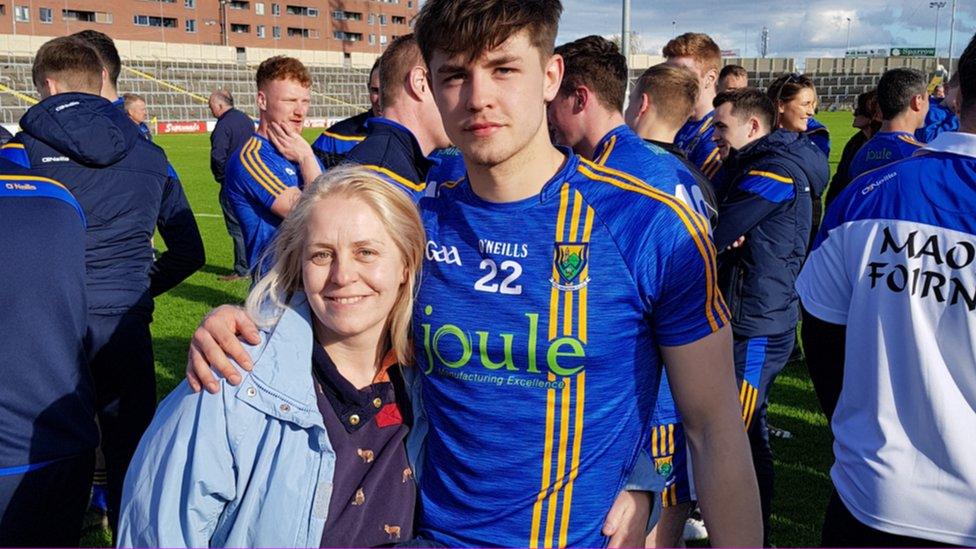
Laurie Kearon celebrating a GAA victory for Wicklow with her Irish-born teenage son
Laurie Kearon was born in England 56 years ago, but she grew up in the Welsh seaside village of Saundersfoot.
She moved to Ireland in 1995 with her three children after the break up of her first marriage.
They settled in County Wicklow and, a few years later, she married a Dubliner and had two more children.
Laurie first applied for Irish citizenship in 2008, but did not complete the process at that time because of the expense.
"It was about €950 (£840) to do the completion and at the time I didn't really have enough money. With raising five children it was a lot of money to find, and I let it lapse.
"When Brexit was announced three years ago, I decided to reactivate it."
Last month, she was one of 2,400 people who attended citizenship ceremonies in County Kerry, where participants took an oath of fidelity to the nation.
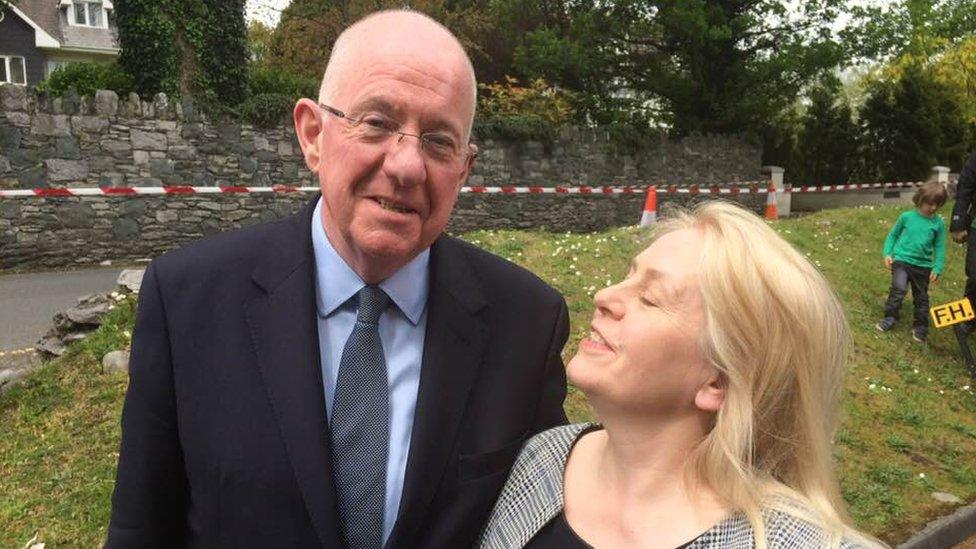
Laurie met Irish Justice Minister Charlie Flanagan during the citizenship ceremony
The Republic of Ireland allows its people to hold dual citizenship, meaning Mrs Kearon did not have to give up her British citizenship.
But the ceremony had great personal significance for her.
"I love Ireland, it was my saviour really. I really love Wicklow, it reminded me of home. I used to be quite homesick but I'm not anymore.
"I love this country and I love its people."
She admitted she was partially motivated by concerns she could lose rights after Brexit.
"I can't comprehend it to be honest, and a small part of wanting to be an Irish citizen is because I still want to remain a European."
Mrs Kearon has fully embraced her Irishness. She is heavily involved in the Gaelic Athletic Association (GAA) and local politics, with ambitions to run for election.
But she also spends much of her time breeding Welsh ponies, and still has a strong sporting allegiance to her childhood home.
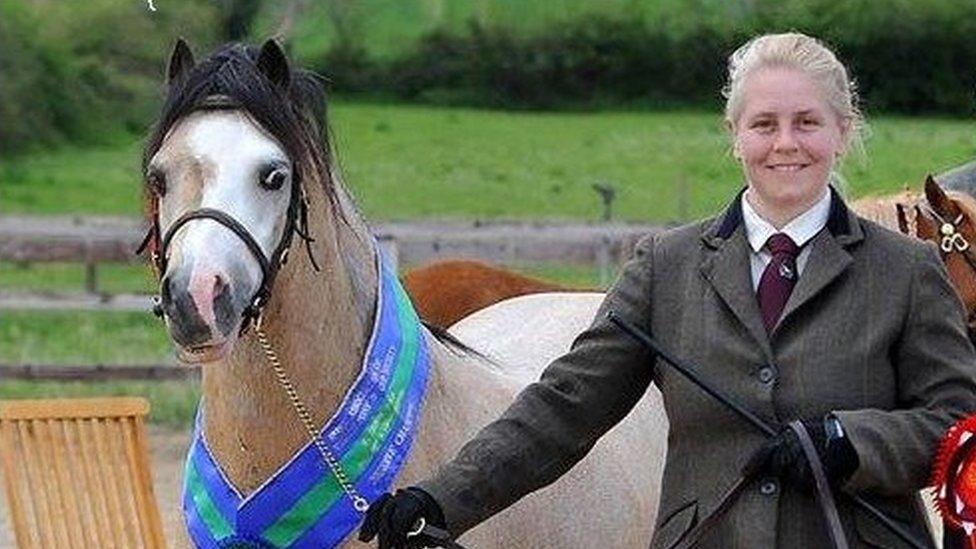
Laurie Kearon is a successful breeder of Welsh ponies and runs a stud farm in Wicklow
"I hold on a little bit to my Welshness," she said.
"It's difficult when rugby games are played between Ireland and Wales because I sort of have to sit on the fence... but generally I would support both teams because I've supported Wales for so long."
But she added: "Ireland is now my country and I'm very, very happy to be an Irish citizen."
- Published30 November 2018
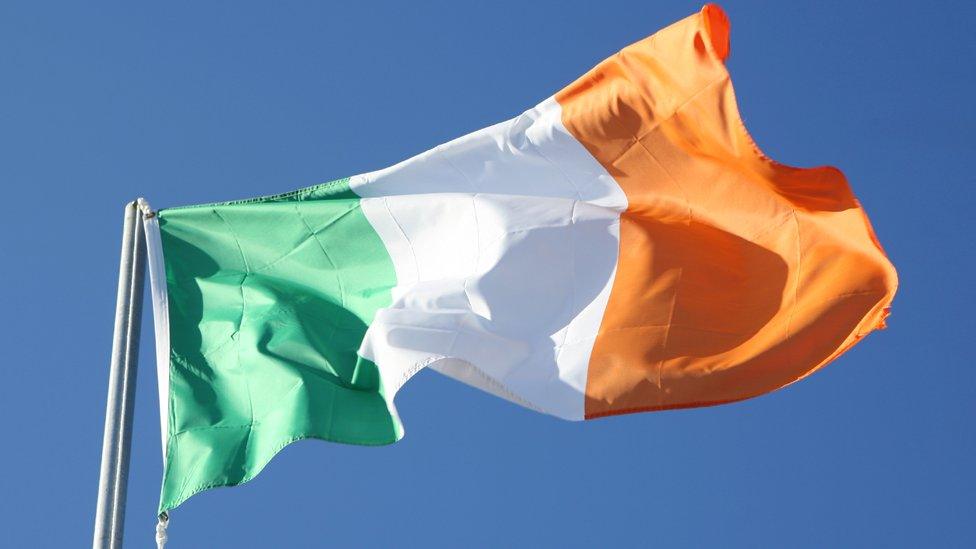
- Published30 October 2018
